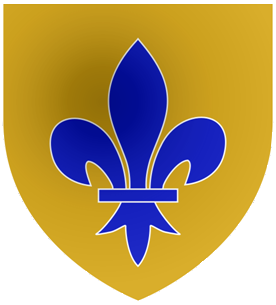Related Research Articles
Thomas Ruthall was an English churchman, administrator and diplomat. He was a leading councillor of Henry VIII of England.

Thomas Adams (1583–1652) was an English clergyman and reputed preacher. He was called "The Shakespeare of the Puritans" by Robert Southey; while he was a Calvinist in theology, he is not, however, accurately described as a Puritan. He was for a time at Willington, Bedfordshire, and his works may later have been read by John Bunyan.

Richard Edwardes was an English poet, playwright, and composer; he was made a Gentleman of the Chapel Royal, and was master of the singing boys. He was known for his comedies and interludes. He was also rumoured to be an illegitimate son of Henry VIII.

Sir William Portman was an English judge, politician and Chief Justice of the King's Bench. He was MP for Taunton in 1529 and 1536.

Geoffrey Blythe was the Bishop of Coventry and Lichfield.
Daniel Cawdry (Cawdrey) (1588–1664) was an English clergyman, member of the Westminster Assembly, and ejected minister of 1662.

The New College at Hackney was a dissenting academy set up in Hackney in April 1786 by the social and political reformer Richard Price and others; Hackney at that time was a village on the outskirts of London, by Unitarians. It was in existence from 1786 to 1796. The writer William Hazlitt was among its pupils, sent aged 15 to prepare for the Unitarian ministry, and some of the best-known Dissenting intellectuals spent time on its staff.
The Tracts for the Times were a series of 90 theological publications, varying in length from a few pages to book-length, produced by members of the English Oxford Movement, an Anglo-Catholic revival group, from 1833 to 1841. There were about a dozen authors, including Oxford Movement leaders John Keble, John Henry Newman and Edward Bouverie Pusey, with Newman taking the initiative in the series, and making the largest contribution. With the wide distribution associated with the tract form, and a price in pennies, the Tracts succeeded in drawing attention to the views of the Oxford Movement on points of doctrine, but also to its overall approach, to the extent that Tractarian became a synonym for supporter of the movement.

The Chief Baron of the Irish Exchequer was the Baron (judge) who presided over the Irish Court of Exchequer. This was a mirror of the equivalent court in England, and was one of the four courts which sat in the building in Dublin which is still called The Four Courts.
Henry Foulis (1638–1669) was an English academic theologian and controversial author.
Stephen Baron was an English Franciscan friar of the Strict Observance.
Henry Thomas Riley was an English translator, lexicographer, and antiquary.
Richard Woleman or Wolman was an English churchman, Archdeacon of Sudbury from 1522; and the Dean of Wells between 1529 and 1537.
William Buckmaster was an English cleric and academic, three times vice-chancellor of the University of Cambridge.
Nicholas Hawkins, LL.D. (c.1495–1534) was an English cleric and diplomat.
This article is about the particular significance of the year 1705 to Wales and its people.
Giles Robinson was an English priest in the late 16th and early 17th centuries.
References
- ↑ "Edwards, David (EDWS528D)". A Cambridge Alumni Database. University of Cambridge.
- . Dictionary of National Biography . London: Smith, Elder & Co. 1885–1900.
- Attribution
![]() This article incorporates text from a publication now in the public domain : "Edguard, David". Dictionary of National Biography . London: Smith, Elder & Co. 1885–1900.
This article incorporates text from a publication now in the public domain : "Edguard, David". Dictionary of National Biography . London: Smith, Elder & Co. 1885–1900.